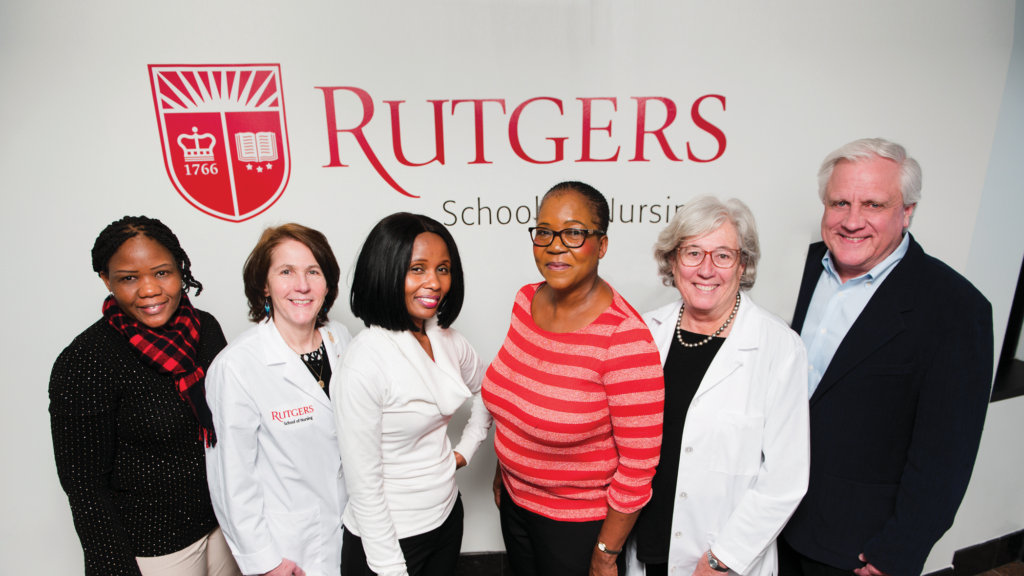This story originally appeared in the Summer 2020 issue of Rutgers Nursing magazine.
In Botswana, a democratic nation in southern Africa with a population of about 2.3 million, a stark lack of resources exists for cancer diagnosis, treatment, and prevention.
“Cancer in Botswana is about where HIV/AIDS was over 20 years ago. It’s on the upward slope and results in high rates of mortality, up to 75 percent,” says Suzanne Willard, clinical professor and associate dean for global health at Rutgers School of Nursing.
A severe shortage in the specialty-trained workforce is a major challenge to providing comprehensive cancer care. For example, in the entire nation, there are only seven to 10 nurses with advanced training in oncology and palliative care. Until now, there were no programs in Botswana where nurses could obtain this training.
Advancing Oncology Nursing Education
Today, new nursing education programs are being launched in Botswana, with assistance from School of Nursing’s Center for Global Health.
For example, the center has provided consulting services, including curriculum review, to assist nurse faculty at the University of Botswana to establish a new MSN program in oncology and palliative care, expected to begin admitting students in the fall of 2020.
School of Nursing faculty are working closely with counterparts in Botswana, including Norman Carl Swart, a lecturer at the University of Botswana School of Nursing and a leader in developing the new MSN program.
Swart shared first-hand information about the severe lack of cancer nursing resources in Botswana during a fall 2019 visit to Newark, where he presented a lecture to the nursing school’s faculty and participated in small-group working sessions with an interdisciplinary team of global health and cancer care experts.
Another visit from Botswana brought oncology nurses to the School of Nursing’s New Brunswick campus for a two-week intensive oncology nursing education program hosted by the global health center. The visiting nurses—two professors and a frontline clinician—are helping to create a new, nationwide oncology nursing strategy and training program for nurses providing cancer care in Botswana.
The two-week program, held in February 2020, included shadowing and precepted experiences at Rutgers Cancer Institute of New Jersey and Robert Wood Johnson University Hospital, as well as lectures on topics such as simulation in oncology nursing education.
Botswana-Rutgers Partnership Aims for Major Transformation
Willard, along with fellow nursing and health professions faculty, has traveled to Botswana to advance nursing knowledge and international collaboration on improving cancer care in the African nation.
“We planned to go back to Botswana in April 2020 to support a large, three-day workshop for nurses and other health care professionals throughout the country. We had to postpone because of the coronavirus crisis, but we’re in communication virtually,” Willard says.
These School of Nursing initiatives fall under the umbrella of the Botswana-Rutgers Partnership for Health, led by Richard Marlink, director of Rutgers Global Health Institute. Willard also is a core faculty member of the institute.
The Botswana-Rutgers Partnership for Health is an essential component of the Botswana-Rutgers Mahube Partnership for Transformation, launched in 2019.
Mahube means “new dawn” in Botswana’s local Setswana language. The Mahube Partnership, led by Botswana President Mokgweetsi Eric Massisi and Rutgers leadership, aims to strengthen health care, information technology, higher education and research, and civic leadership.

